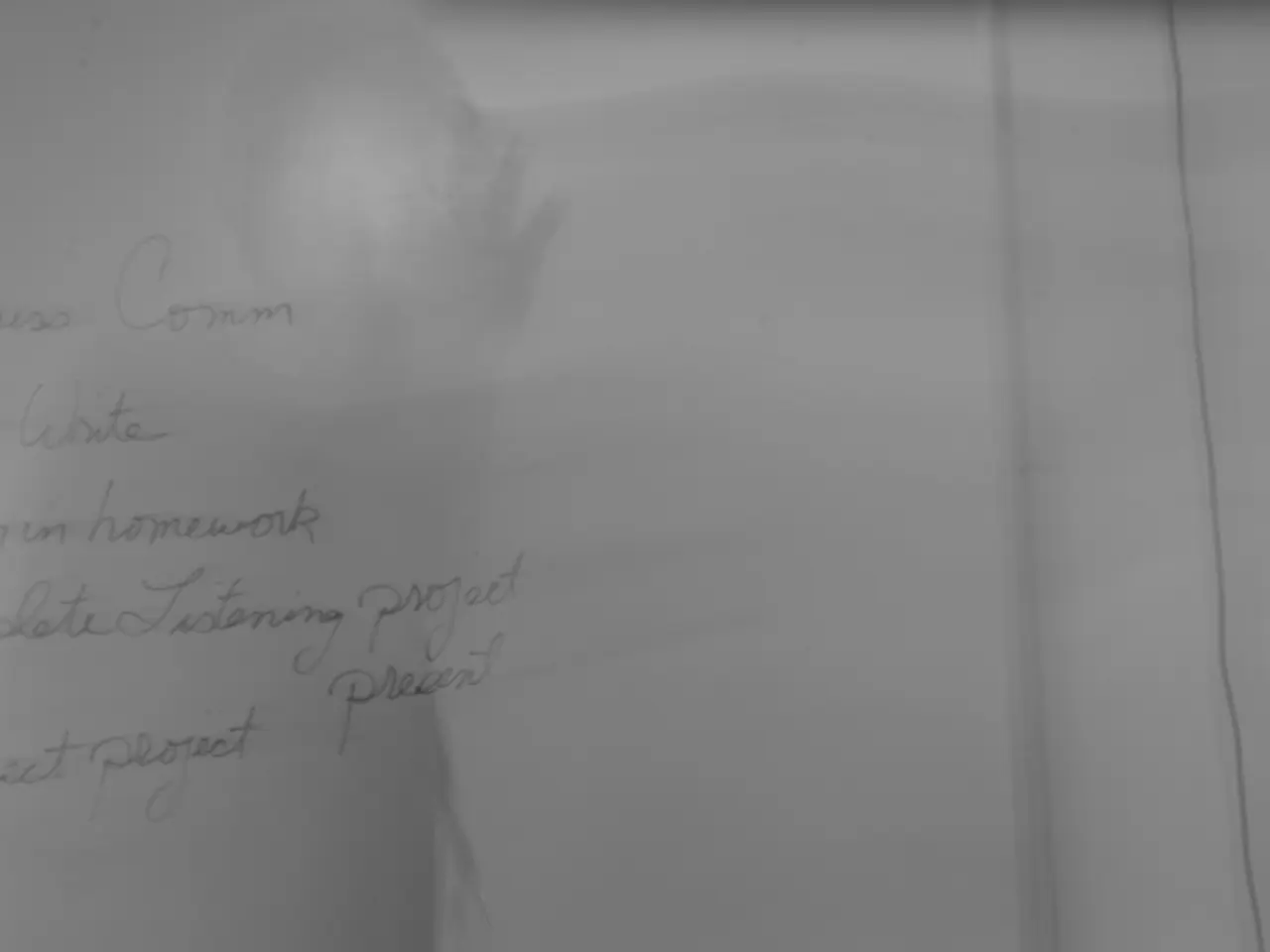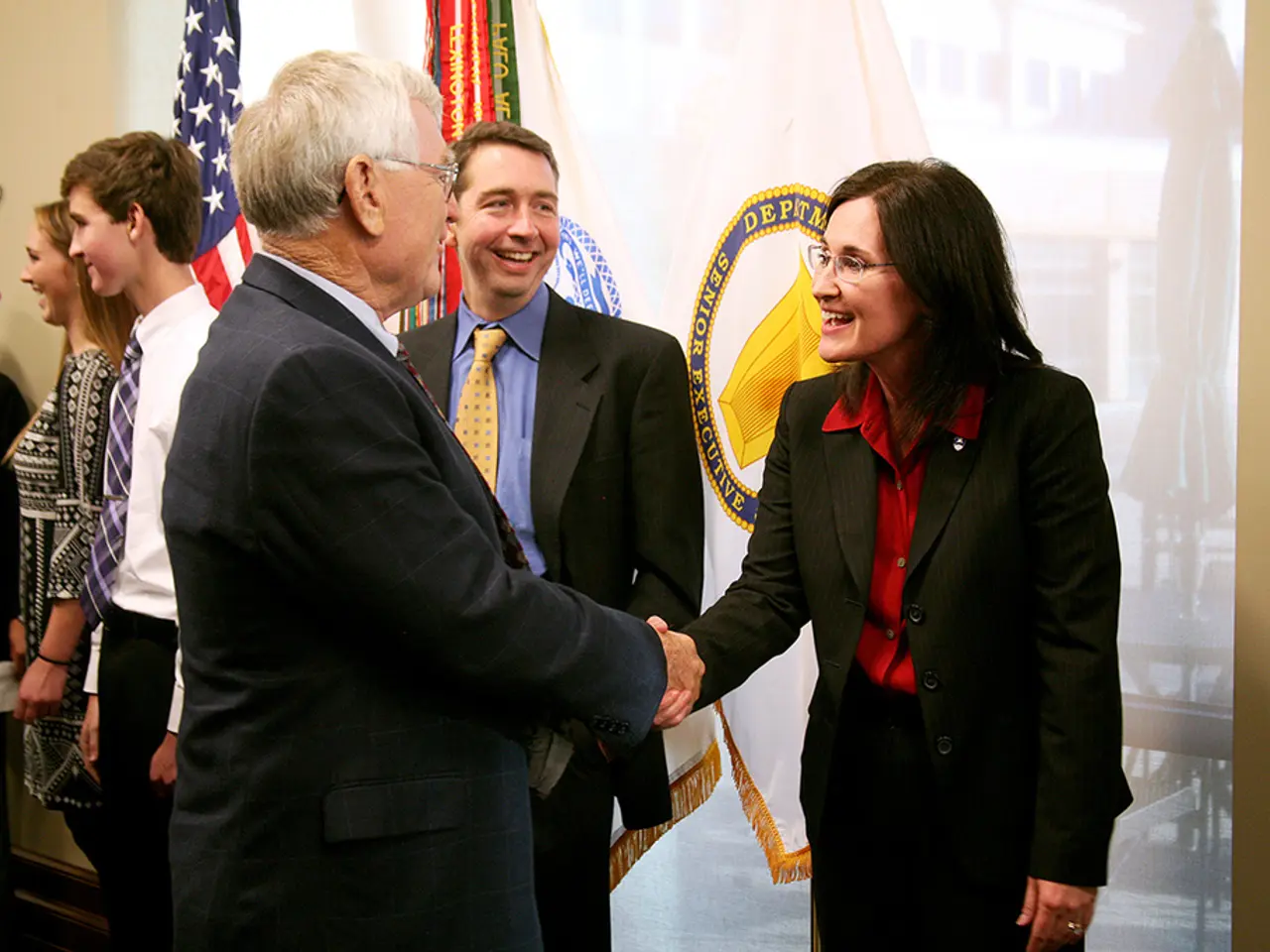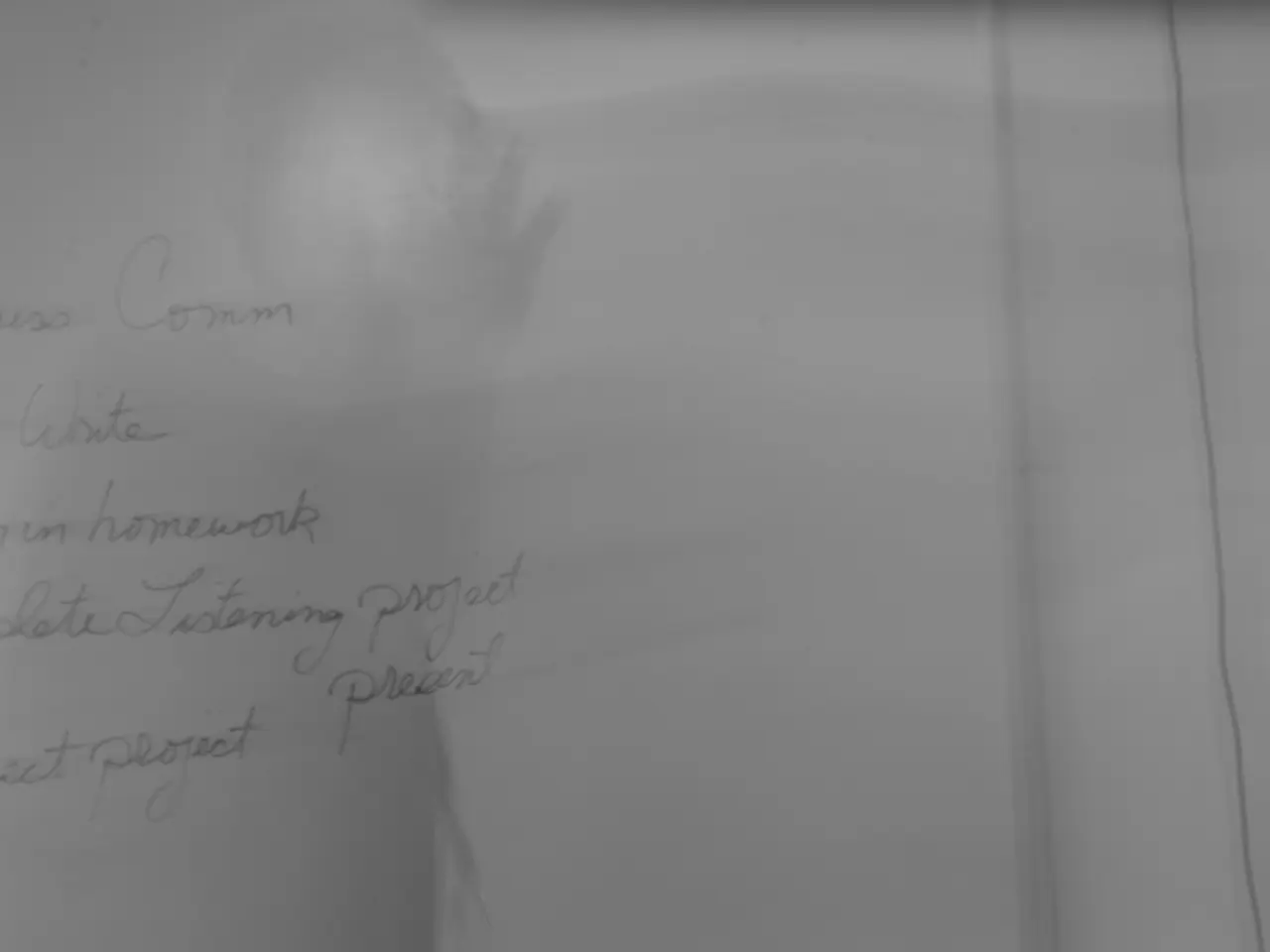Klingbeil counters Trump's tariff ultimatum: "We won't comply blindly" - Klingbeil responds to Trump's tariff threat, stating: "We won't comply with everything"
In the ongoing trade conflict between the European Union (EU) and the United States (US), Vice Chancellor Lars Klingbeil of the SPD, the US President, has urged both parties to de-escalate tensions and negotiate a fair deal.
Klingbeil's comments, made in a Sunday interview with SZ, came in response to President Trump's announcement to impose tariffs of 30% on EU goods, effective August 1st. The Vice Chancellor expressed regret over this decision and voiced concerns about the potential harm these tariffs could inflict on both the American and European economies.
Klingbeil believes that Trump's tariffs threaten the American economy as much as companies in Europe. He reiterated his desire for a fair deal between the two economic powerhouses, stating that the trade conflict must be ended. The Vice Chancellor advocated for serious and targeted negotiations between the EU and the US, and he does not support new threats or provocations in the current situation.
Europe, according to Klingbeil, remains united in its stance against Trump's tariffs. The EU is preparing to retaliate if negotiations do not yield relief from tariffs, with potential countermeasures including additional import duties on US products and restrictions on scrap metals and chemicals.
The current negotiations are tense and evolving, with the EU positioning itself to avoid the most severe tariffs through concessions. However, the Trump administration appears unlikely to reduce tariffs below the 10% baseline, making the EU’s efforts a damage-limitation exercise focused on protecting key export sectors. Any tariff relief is expected to be selective, possibly granted to individual companies willing to invest or move production to the US.
The coming weeks before the August 1 deadline will likely be decisive for a formal agreement or escalation. A successful outcome would likely see tariffs lowered from the initial threatened levels but probably remaining above zero. The EU faces the challenge of responding swiftly to new tariff announcements, managing the impact on exporters, preserving market unity, and diversifying export markets to mitigate risks.
As the trade conflict between the EU and the US continues to unfold, the need for a fair and mutually beneficial agreement becomes increasingly apparent. Both parties must work towards de-escalation and serious negotiation to avoid further harm to their respective economies and maintain global economic stability.
- "Lars Klingbeil, SPD's Vice Chancellor, expressed his concerns about the potential harm that President Trump's 30% tariffs on EU goods could impose on both economies, urging for serious negotiations in politics and policy-and-legislation to de-escalate the trade conflict and reach a fair deal."
- "Klingbeil also emphasized that Trump's tariffs pose a threat to the American economy as well as European companies, stating that Europe remains united in its stance against these tariffs and is prepared to retaliate with countermeasures including war-and-conflicts measures such as additional import duties and restrictions on scrap metals and chemicals, if necessary."







